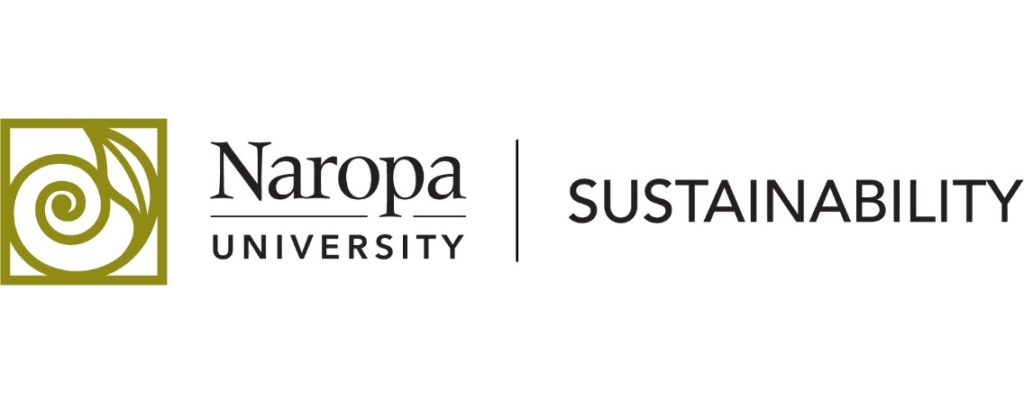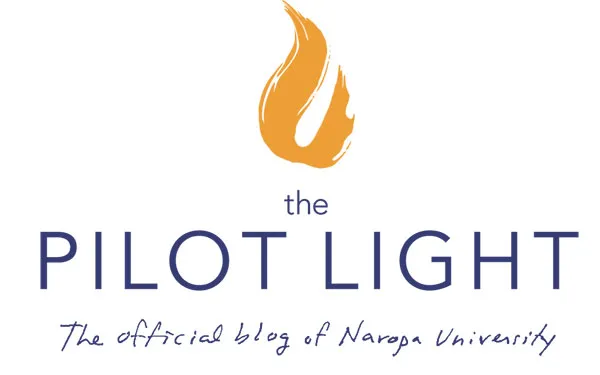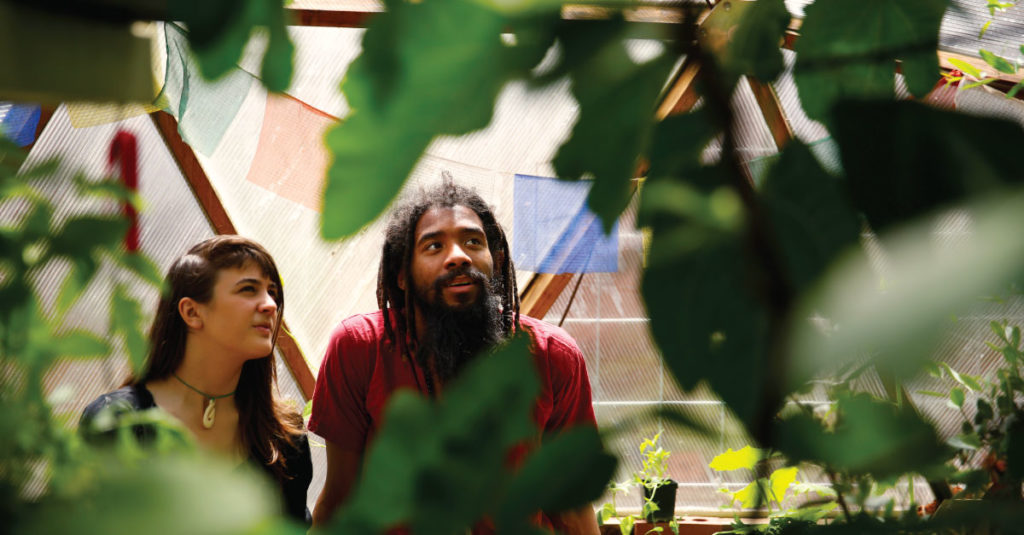By Anthony Gallucci, MA Religious Studies & Student Sustainability Liaison
The Green Gaze is themed around the plausible meshing of neo-sustainability efforts with the gnosis of wisdom traditions (religions) in an effort to invigorate collective and holistic non-toxic ecological praxis.
Well-meaning people sometimes assume that environmental sustainability efforts are innate to the concerns of most wisdom traditions. Therefore, it is often implied that any unsustainable or ecocidal-terroristic acts, of any given wisdom tradition, are the fault of the societal influences the wisdom practice is encompassed by rather than the laissez-faire, spiritual narcissistic, esoteric, non-dualistic, or isolationist approaches of some wisdom conventions. The reality may be that a middle-way may exist in which both perspectives hold certain validity.
In the Naropa Office for Sustainability, we intend to coincide with the efforts of the Harvard University Center for the Study of World Religions by holding space for—and threshing out—the discussions regarding the place of wisdom traditions in collaborating and supporting of the eco-sustainability movement already upon us at our university.
To begin, we will attempt to establish what the relevancy of various text-based doctrines of wisdom traditions may hold for environmental critique efforts, initiating wisdom-tradition sponsored sustainability efforts, encouraging eco-friendliness and sustaining sustainability efforts that already have begun. Next, we will begin to offer suggestions on how to connect theistic, panentheistic, philosophical, and wisdom ideologies to behaviors that we may adapt to support the sustainability movement. To conclude, we hope to offer opportunities for people to utilize various wisdom traditions in an effort to actualize eco-friendly behaviors.
For example, Naropa University was founded upon a lineage of two of the “main” schools of Buddhism from Tibet; the Kagyu and Nyingma lineages. In foundational Tibetan Buddhist tradition, there are certain moral standards that are established for all practitioners of the dharma path. The sacred Buddhist doctrine that expresses the moral standards that are relevant to our ecology (relationship with the biosphere) is the “pañcaśīla”/the five precepts. The first and second precepts are specifically poignant to the discussion around the Buddhist obligation to certain behaviors that may help to sustain health and life on the planet.
- Panatipata veramani sikkhapadam samadiyami
I undertake the precept to refrain from destroying living creatures.
- Adinnadana veramani sikkhapadam samadiyami
I undertake the precept to refrain from taking that which is not given.
(“The Five Precepts: pañca-sila“, edited by Access to Insight. Access to Insight (BCBS Edition), 30 November 2013)
The behavioral suggestions of the pañcaśīla could be put to action on Naropa campuses through individual ethical efforts. One way to respect the first precept would be to minimize one’s intake of meat and try to eat sustainable-sourced and organic livestock, poultry or seafood. One way to abide by the second precept could be to join the anti-fracking efforts and activate against the theft of non-sustainable resources from the environment.
The implications for how the sustainability movement can be served by wisdom traditions are great and virtuous. The Naropa Office for Sustainability intends to continue the necessary work of engaging our community, our faith/spirituality, and our culture in the movement to withdraw and allow the earth to save itself (and us!).



